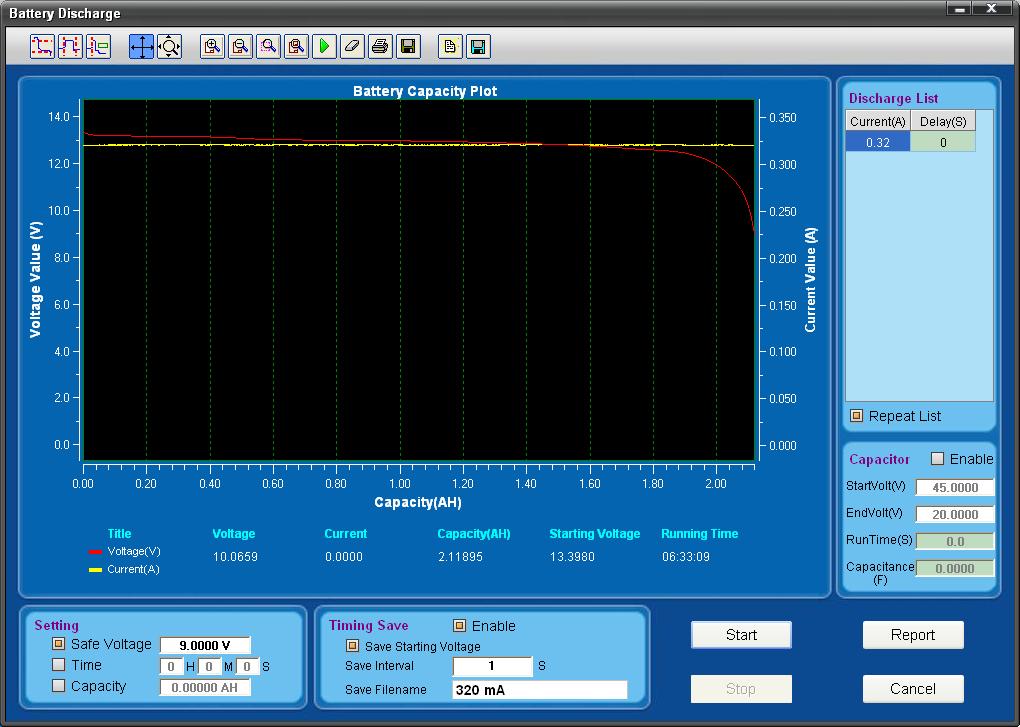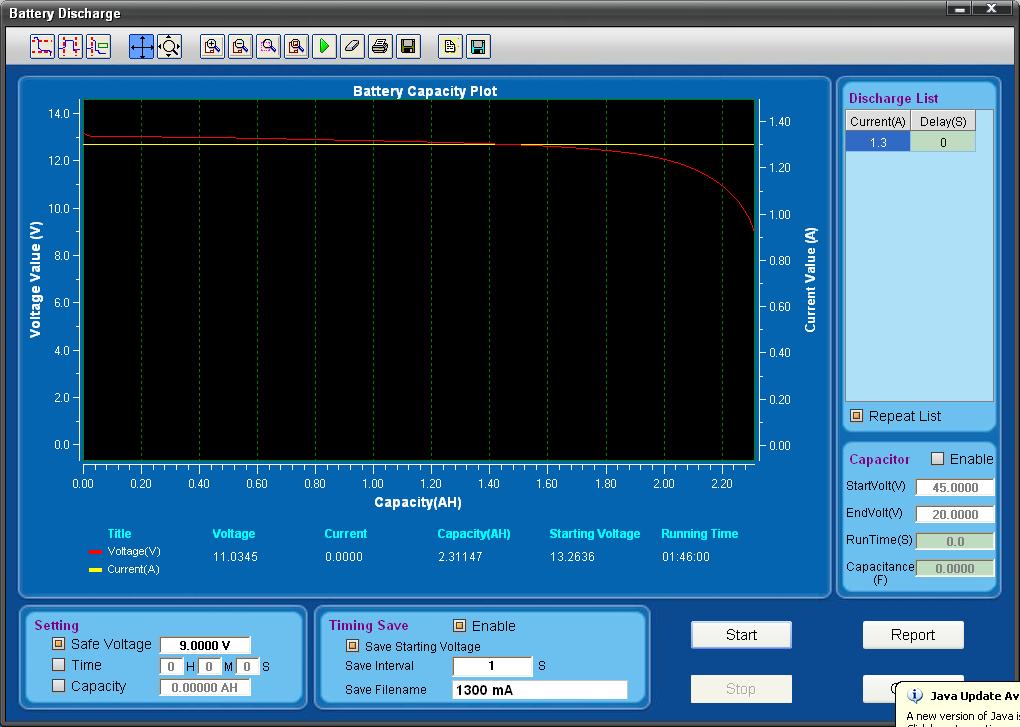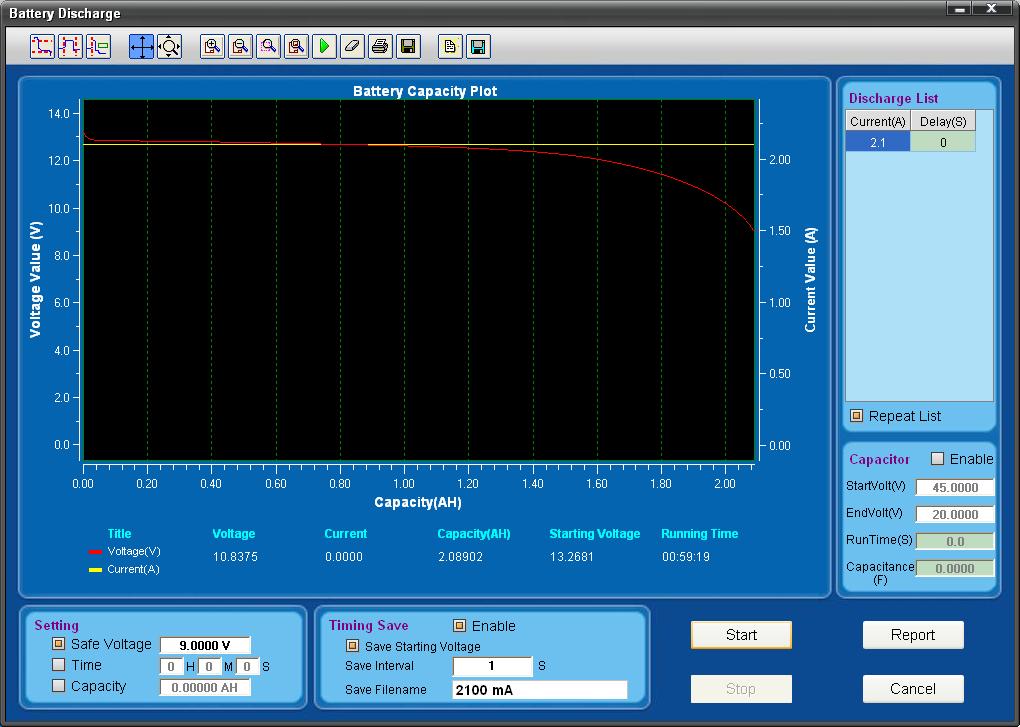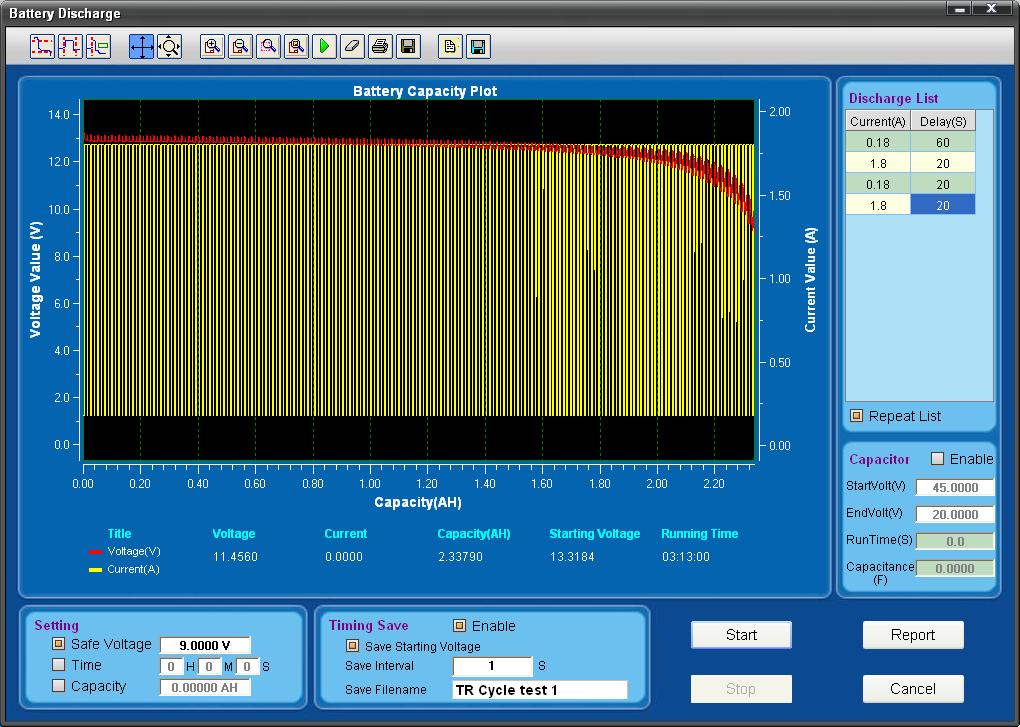Specifications
Chemistry – LiFePO4
Nominal V – DC 13.0 V
Weight – 24.0 oz (680 g)
Volume (excl wires) – 54.6 in³ (895 cm³)
Claimed capacity – 20,000 mAh
320 mA (0.12 C) discharge rate – 2119 mAh capacity, 6:33:09 running time
1300 mA (0.5 C) discharge rate – 2311 mAh capacity, 1:46:00 running time
2100 mA (0.81 C) discharge rate – 2089 mAh capacity, 59:19 running time
TR Cycle – (alt. 0.18-1.8 A discharge) – 2338 mAh capacity, 3:13;00 running time
Measured Energy – 30.39 Wh @ 0.3 C rate
Measured Specific Energy – 1.27 Wh/oz (45 Wh/kg)
Measured Energy Density – 0.56 Wh/in³ (34Wh/L)
Notes
(Unit had to be modified to disable it’s emergency crank start protection. Without this mod the 12 V output would only enable for 20 seconds.)
This QuickCable PowerPack was advertised as a 20,000 mAh battery, but it tested at only 11.7% of it’s advertised capacity. It’s relatively low Specific Energy and Energy Density is mostly due to a large plastic case containing the cell pouches, charge circuitry and an LED light source and switches. It’s four LiFePO4 pouch cells allow it to deliver very high currents for a short period of time, since it’s advertised use is as a vehicle jump-start battery. For this purpose it is supplied with a set of car battery clamps. It has a high-current relay which only enables the 12 V output for 20 seconds to protect th battery from over discharging. It’s inability to output a maintained 12 V makes it unusable for a ham power source.




